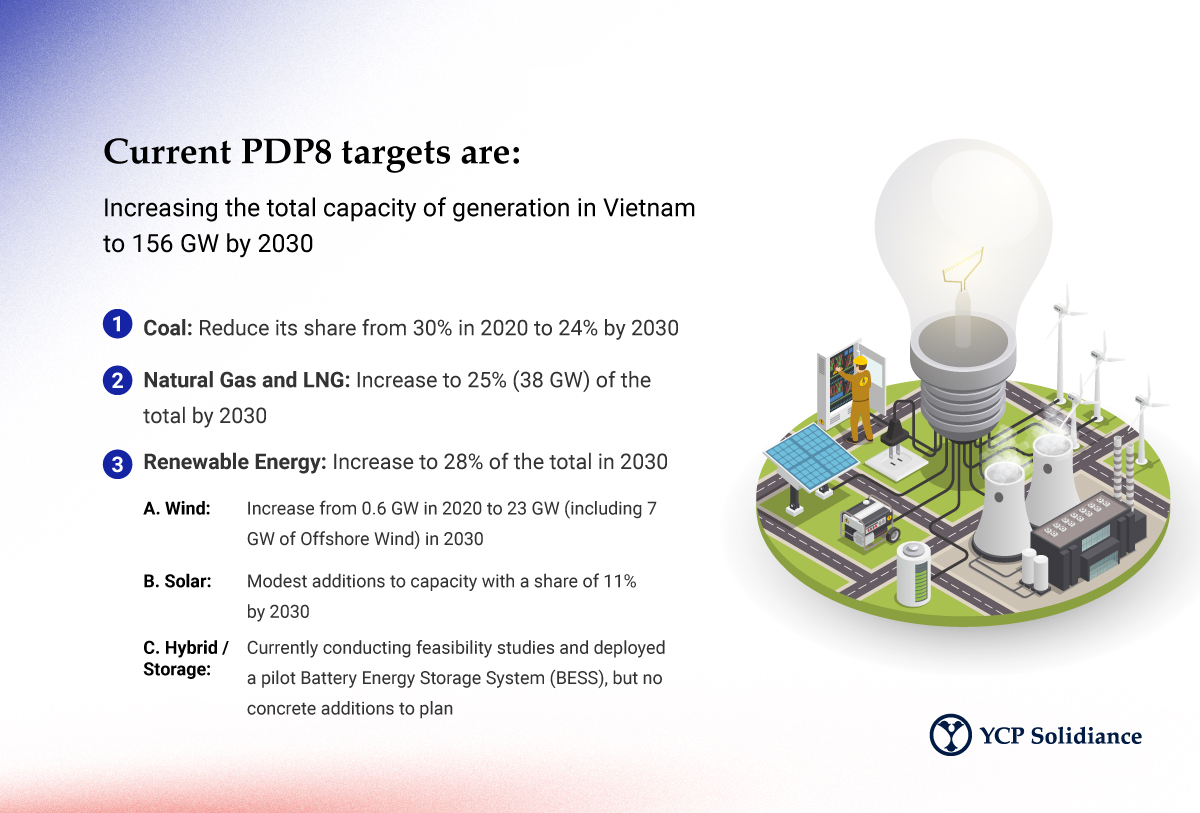It is evident to both public and private sector stakeholders that Vietnam needs to prioritize its environmental impact reduction to become an industrial and manufacturing hub within Southeast Asia. As more focus is given to meeting net-zero pledges set at the United Nations Climate Change Conference (COP26) at a policy-making level, major corporates are expected to help hasten the transition into, and the growth of, renewable energy sources in Vietnam.
Currently, Coal power represents approximately half of all electricity generation in Vietnam, with renewable sources only at 5%. While Coal will continue its growth in the near future, all recent drafts of the Power Development Plan 8 (PDP8) aim to reduce its percentage share in the energy mix through the growth of renewable sources such as Wind and Solar.
Vietnam’s renewable energy sources are expected to increase to 28% of the power mix in 2030, and rise to a majority of 51% by 2045.
Key Drivers for Renewable Energy Growth and Transition in Vietnam
Vietnam’s energy transition to renewable sources is driven not only by the aforementioned COP26 pledges, but three key drivers for growth:
- Vietnam has high energy sector growth potential, as the second-largest electricity user in SEA.
- The Vietnam government is committed to investing in renewable and sustainable energy for security and environment protection.
- Public desire for environmental preservation is higher than ever.
These key drivers are central to the energy transition conversation, especially with private sector stakeholders who want to explore investment opportunities within the country. Establishing local partnerships with parties who can navigate Vietnam’s policies and regulations will be crucial to guaranteeing long-term success, along with understanding the intricacies of the different renewable energy sources available in the country.
This publication will examine three key areas that can heavily influence Vietnam’s energy transition initiatives: reducing Coal dependency through Liquified Natural Gas (LNG), Wind energy in Vietnam as the main driver of renewable development, and opportunities for private companies to invest in renewables through areas such as the energy storage system.


